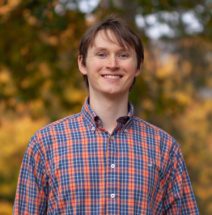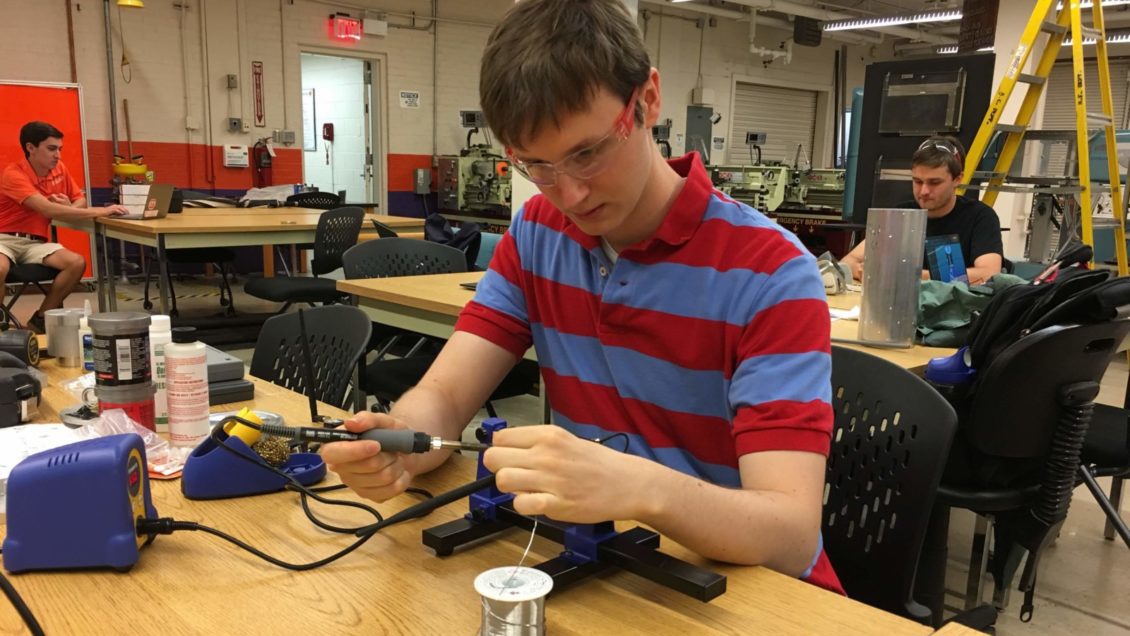In his first year after graduating from Clemson University, Charles Dove won the prestigious Hertz Fellowship, started a Ph.D. program at the University of California, Berkeley and conducted scientific research worthy of a Fulbright scholarship.
He did it all from his bedroom in Clemson.
“It’s been a hectic year for everyone, but I’ve been having a lot of fun getting into research and doing work that hopefully will help a lot of people,” Dove said.

Dove last year received his Bachelor of Science in electrical engineering from Clemson. He went on to apply for the Hertz Fellowship, one of the nation’s most competitive awards for graduate students.
Out of more than 900 applicants from around the world, Dove was among 12 this year to receive the fellowship. It comes with five years of funding up to $250,000 and the freedom to pursue innovative projects wherever they may lead, according to The Hertz Foundation website.
Previous winners have gone on to receive MacArthur Fellowships, the Fields Medal, the National Medal of Science, the National Medal of Technology and the Nobel Prize.
Daniel L. Noneaker, associate dean for research in Clemson’s College of Engineering, Computing and Applied Sciences, said having an alumnus as a Hertz Fellow helps raise the college’s reputation globally.
“The fellowship is reserved for the nation’s most promising graduate students in science and technology,” Noneaker said. “We are thrilled that Charles laid the foundation for his success in the Clemson University College of Engineering, Computing and Applied Sciences. He is highly deserving of this honor, and I offer him my deepest congratulations.”
COVID-19 shredded Dove’s post-graduation plans to study in Switzerland as part of his Fulbright award, but he didn’t let the pandemic sideline him.
The research Dove was originally supposed to conduct at Ecole Polytechnique Federale de Lausanne, he did from his bedroom. His work focuses on the intersection of biological imaging, light-based devices and artificial intelligence.
While at Clemson, Dove made his mark in the classroom, the lab and his extracurricular activities.
He played a leading role in the Rocket Engineering Team, where he helped launch rockets to the height of Mount Everest. Dove also founded the Small Satellite Team, and as founder of the Fusion Engineering Team, he led experiments in nuclear fusion.
Dove said Clemson’s support for student organizations was key in helping prepare him for the work he has done over the past year.
“That is where Clemson excels on a national level– the support for students in experiential learning,” he said. “You can have an idea and say, ‘I think I would like to fly some satellites.’ You can make that a reality.”
He also credits Clemson’s Office of Major Fellowships with playing an integral role in his success. The office helped him successfully apply for a Fulbright award and an Astronaut Scholarship.
Some of the Clemson faculty members who were especially supportive of his efforts included: Noneaker; Garrett Pataky, an assistant professor of mechanical engineering; Lin Zhu, a professor of electrical and computer engineering; and Chad Sosolik, professor of physics and astronomy.
Dove, the son of Richard and Linda Dove, is originally from Vicksburg, Mississippi. He and his family moved to Clemson when he was in 7th grade, and he graduated in 2016 from Daniel High School. At Clemson, he was a member of the Honors College.
Now that travel restrictions and social distancing are starting to loosen up, Dove is planning to leave behind the Clemson bedroom where he did so much of his work over the past year.
In July, he will head to Berkeley to continue his research, having left his mark where the Blue Ridge yawns its greatness.
WANT TO LEARN MORE? Students interested in the Hertz Fellowship, Fulbright US Student Program or other nationally competitive programs should contact the Office of Major Fellowships at 864-656-9704 or fellowships@clemson.edu.
Get in touch and we will connect you with the author or another expert.
Or email us at news@clemson.edu

